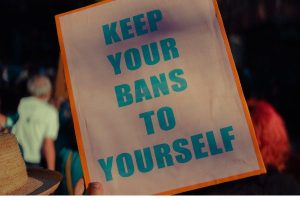Twitter Bows to Legal Pressure in Germany, Blocks Adult Content
 In response to pressure and new laws of age verification meant to protect minors in Germany on social media, Twitter has bowed to legal orders and has begun the task of removing adult content. Starting in late 2020, the site has blocked at least 60 “inappropriate” accounts including one with over 700,000 followers. Users who attempt to view these pages are met with a message which states that it has been “withheld in response to a legal demand.” These profiles can be seen outside Germany but are kept hidden within the country.
In response to pressure and new laws of age verification meant to protect minors in Germany on social media, Twitter has bowed to legal orders and has begun the task of removing adult content. Starting in late 2020, the site has blocked at least 60 “inappropriate” accounts including one with over 700,000 followers. Users who attempt to view these pages are met with a message which states that it has been “withheld in response to a legal demand.” These profiles can be seen outside Germany but are kept hidden within the country.
As originally reported on by Wired, orders to Twitter to remove accounts are part of a sweeping crackdown on porn all across the country. Other sites including YouPorn, Pornhub, xHamster, and MyDirtyHobby have all been on the chopping block as well. This is surprising for a country that has always seemed to be sex-forward with legalized, regulated prostitution, comprehensive mandatory sex education programs in schools, and most tellingly a #13 rating by the World Population Review as one of the most promiscuous countries in the world (the USA didn’t even make the top 20).
The hammer slamming down on adult content comes from German regulators, which have ruled that online pornography must be age-verified, thus laying the burden on the shoulders of the platforms. Though Twitter already restricts adult content to those who don’t list a birthdate or who are under 18, this is unacceptable to the German Government who mandated a “proper” age verification system. Therefore, Twitter has had no recourse but to block accounts or face legal ramifications.
Marc Jan Eumann, the chairman of the Kommission für Jugendmedienschuts (KFJ) – (The Commission for the Protection of Minors in the Media) stands by the decision explaining that access to porn by the underage is a huge problem in the country and though they believe in freedom of speech online, they also must protect children. After KFJ served Twitter with legal proceedings, Eumann went on to proudly comment “we were actually the first authority in Europe to do so and will continue.”
Critics claim the German restrictions lack “transparency” and are a sneaky way to champion conservative ideas on porn. Paulita Pappel of the European branch of the Free Speech Coalition told Wired: “They are using the protection of minors as an excuse to push forward very conservative policies to bring down porn companies but also smaller sex workers and content creators.” Further controversy has arisen from users who fear their porn watching habits will be tracked by the government.
Another fallout of this type of legislation is it gives other countries inspiration to follow in their footsteps. The UK is not far behind Germany and plans to also mandate age verification with its Department of Digital, Media, Culture and Sport trumpeting the announcement on Safer Internet Day – an event which now takes place in 200 countries and territories worldwide. France’s media regulator Arcom also put forth age-verification rules for eight adult websites. Further, just this month, as reported by YNOT, Switter closed its doors after the inability to overcome never-ending government regulations. It’s all part of a scary trend that claims protection of minors by stepping on freedom of speech and disenfranchising a whole industry. Mashable put it best: “Improve sex education, Censorship isn’t the answer.”
“Bans” image by Lerone Pieters from Pexels













